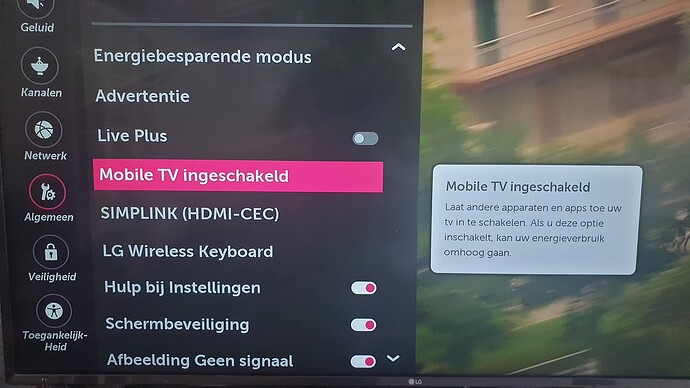I just bought a new (budget) TV to put into my bedroom, but just realized it has a Bluetooth TV remote. My old one had IR, which worked great. Now looking for a good solution to connect the new Xiaomi TV A Pro 2025 to Homey. Does anyone have a great idea of how to accomplish that?
You could try: Android TV App for Homey | Homey
Thanks, I did try that one, but it’s limited in functionality (you can’t select TV channels for example), but even worse, every time you switch the TV off, you can’t turn it back on again (device unavailable in homey) and even when I turn it on with the normal remote, I need to repair the Homey connection. So unfortunately not a great solution to the problem, but thanks for your reply ![]()
According to ChatGPT:
The Xiaomi TV A Pro 55 2025 does include an IR receiver. This means you can use an IR remote control to operate the TV in addition to the supplied Bluetooth remote. This feature allows for flexibility in controlling the TV, especially if you prefer using a universal remote or have other devices that you control with an IR remote (Xiaomi) (Mi-Home) (Authorized Xiaomi Store PH Online).
I guess it depends on the question you ask, because it can also be less convincing:
"However, while the primary remote is Bluetooth-based, many modern TVs, including those from Xiaomi, often retain an infrared (IR) receiver to support universal remotes or secondary control methods. This isn’t explicitly confirmed in the specifications available, but it’s a common feature in many smart TVs for compatibility with various remote controls and smart home systems.
If you need to use an IR remote, checking the TV’s manual or directly with Xiaomi customer support could provide a definitive answer."
But LLM’s like ChatGPT aren’t very smart anyway:
I asked it with the model in the question with reference to ChatGPT. It also has some reference to the sources. . I replied it in this topic so @Chris_nl can check if this is so (he is the owner of this tv) and find out if he can control the TV this way through Homey (probably with an universal RM),
But if you have any better idea in answer to the first question, I think Chris would be very happy with that reaction.
So did I.
The screenshot shows that it’s just very easy to get ChatGPT to give a BS answer, and lots of people think it’s actually based on anything other than just statistics.
Same here, but none of them explicitly say that the device has an IR receiver.
I don’t have a better idea, that’s why I haven’t answered ![]()
So hopefully for Chris this is a possibility
Unfortunate according to https://www.mi.com/global/support/faq/details/KA-142688 is has no support for IR
Remote control
1 . Q: Does the Xiaomi TV A Pro 55 2025 support IR?
A: Not support.
This is because of energy saving by the TV itself.
There has to be an option in the TV settings somewhere, which keeps the Wifi/Ethernet connection active, which allows to turn the TV on by the phone app, and thus Homey.
My LG tv it is this cryptic option:
Unfortunately not, that would make things a lot easier. Seems no IR is available for this model. But thanks for your reply ![]()
Thanks I don’t have any option like this, but do have different energy saving profiles, so maybe one of them will automatically have this included. Thanks for the tip, I’ll have a look and test it out ![]()
I do have some esp’s or even a PI that are currently not in use, so if someone knows a solution with a way to connect the Bluetooth to the TV and use MQTT or HTTP request to execute commands, that might be a workaround.
Maybe this one, Chris
Seems to be the other way around, receive Bluetooth etc and then send MQTT, also no TV’s on the compatibility list, but might be a good start to dive into it some more, thanks ![]()
Yeah, I didn’t really dig through it, to me the word Bidirectional suggests it’s a transceiver.
Maybe it has a signal learning function, or can it be added somehow.
Bluetooth (or rather BLE, which I assume the remote is using) isn’t a “dumb” protocol like IR that you can learn and repeat, you have to know exactly which services and characteristics it uses and what kind of data it sends/receives for them (and knowing Xiaomi there’s a fair chance that the data is encrypted, which makes things even harder).
Eventual workaround (finally had some time to set this up and test it), added the device to Home Assistant (over network, not bluetooth), and connected the “TV” from Home Assistant to my Homey as a device. Now everything works great.
I already had a HASS Sertup for some other devices and dashboards, so seemed like the best workaround. Hope this update is useful for someone in the future ![]()

